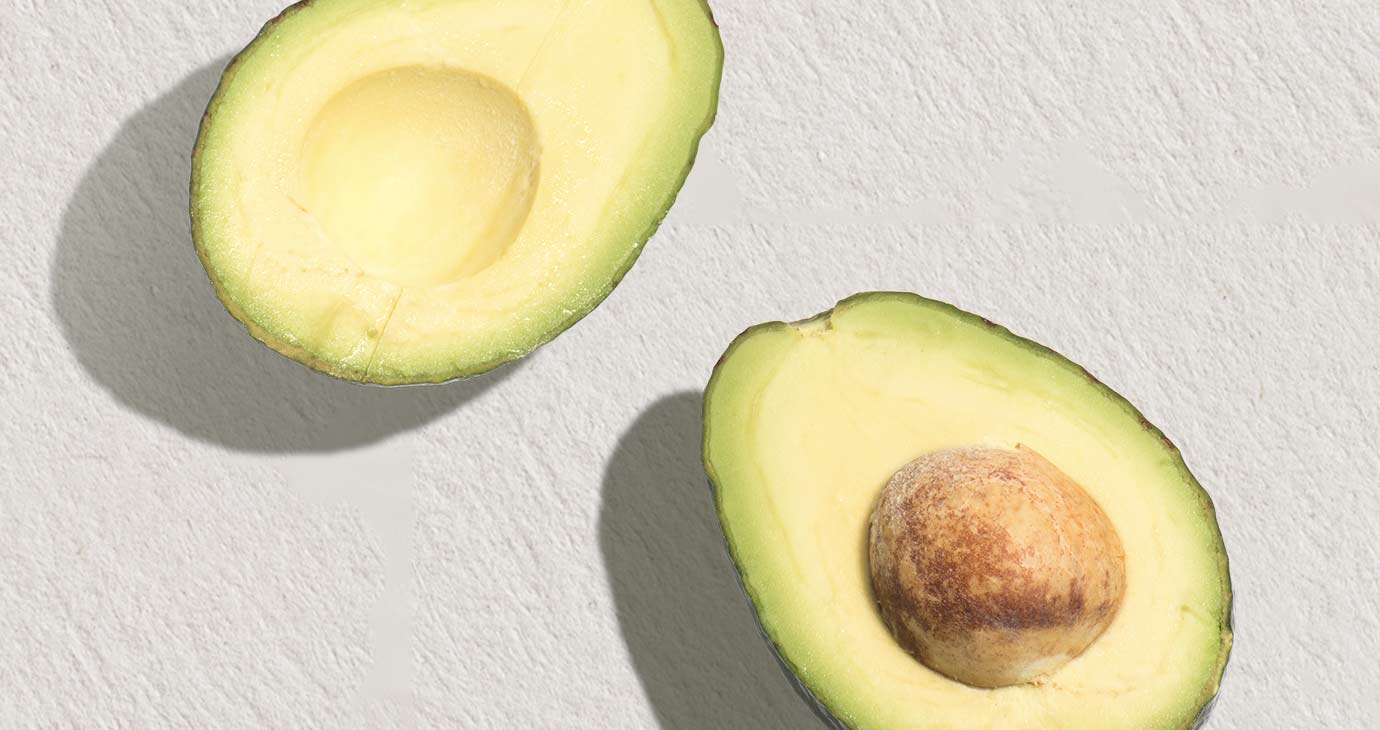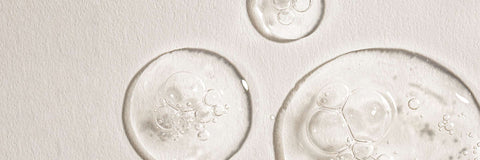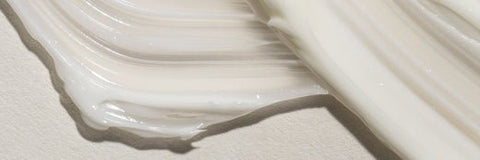Niacinamide is a form of vitamin B3, an essential nutrient that not only works wonders inside the body, but outside as well. While it seems like it's been popping up everywhere these days, niacinamide has been a mainstay in skincare products for years.
Read on to find out more about what niacinamide is and where it comes from, how it can enhance your beauty routine, the benefits of using skincare products that contain it, who it's best for, and FAQs about this-not-so new "it" ingredient.
IN A NUTSHELL
Ingredient Category: Antioxidant
Main Benefit: It helps balance natural oils, protect skin from environmental stressors, and brighten and even skin tone.
Find It In: Eyes Eyes Baby Anti-Aging Eye Cream, Nectar of the C Vitamin C Serum, Just Dew It Hydrating Serum, ‘A’ Game Retinol Serum, H2 Oh Yeah Hydrating Moisturizer, Youth Fairy Retinol Moisturizer, and Crème de la Cream Brightening Moisturizer.
What Is Niacinamide? Where Is It From?
Niacinamide, which also goes by nicotinamide when it's feeling fancy, is one of two forms of vitamin B3. The other is niacin. While the two sound similar, they are chemically different.
Niacinamide can be found in many foods, including meat, fish, milk, green veggies, avocados, and cereal grains. It's also packed into many vitamin B complex supplements alongside its good friends biotin and folic acid. Our bodies can use dietary niacin to create niacinamide internally, too.
When it comes to skincare products, niacinamide pops up in everything from sunscreen and lotions to facial serums. Thanks to its ability to perform amazing feats like even texture, brighten and strengthen skin, and diminish dullness, it is basically a skincare saint. Niacinamide is commonly derived from cereals or brewer’s yeast, not animals, when used in skincare.
We're big fans of vitamin B3 for skin over here, which is why you'll find niacinamide in almost everything, from our Eyes Eyes Baby eye creamcream to our Youth Fairy retinol moisturizer.
10 Niacinamide Benefits For Skin
Now we know what niacinamide is– but how does it help our skin? Below are a few benefits of niacinamide for your skin:
1. Niacinamide helps restore and strengthen skin.
Niacinamide is known to help build keratin, thereby restoring and strengthening your skin.
2. It gives an assist to moisturizers.
Niacinamide lends a helping hand to the stratum corneum, AKA the outermost layer of the epidermis. It supports this vital buffer so it can retain moisture, which makes lotions all the more effective.
3. It balances the skin's natural oils.
While it's busy preserving hydration, niacinamide also does double-duty by helping to control your natural oils. This helps to diminish excess shine.
4. It offers natural protection against environmental stressors.
As an antioxidant, one of niacinamide's top jobs is to act as a buffer between our skin and the environment.
5. Niacinamide helps reduce the appearance of wrinkles.
All that antioxidant activity and reduced moisture loss have a welcome side effect: a softened look and a diminished appearance of fine lines and wrinkles.
6. It creates a smoother-looking appearance.
Since niacinamide stops outside stressors from wreaking havoc on your complexion and supports your lipid barrier, it supports a softer, smoother appearance.
7. It has a calming effect.
Niacinamide deflects irritants from your skin, allowing your complexion a chance to rejuvenate itself and take a much-needed breather.
8. It minimizes the appearance of pores.
Smooth, moisturized skin free of irritants means unclogged pores, which tend to be less visible.
9. Niacinamide alleviates temporary blotchiness.
The calming effect of niacinamide eases discomfort and lessens temporary redness, paving the way for renewed, beautiful skin.
10. It's great for skin exposed to the elements.
In higher concentrations, niacinamide provides potent antioxidant power that clarifies and balances skin, making it perfect for sun lovers and those who spend a lot out of time outdoors.

How to Use Niacinamide for Skin
Using niacinamide for your skin is easy — simply choose products that include this amazing ingredient. You'll find it in toners, moisturizers, serums, masks, under-eye creams, leave-on treatments, and boosters. Concentration levels can vary, but you can expect most formulations to contain 5 percent or less.
Here are a few more tips for using niacinamide to make the most out of your beauty routine:
1. Always begin your skincare routine with a facial cleanser!
2. Apply your favorite toner. You can opt for one with niacinamide, or stick to the basics with a hydrating rose water toner.
3. It's serum time. You can opt for a niacinamide-boosted serum, such as Just Dew It hydrating serum.
4. Treat the delicate skin around your eyes with Eyes Eyes Baby, a moisturizing eye cream with niacinamide.
5. Apply moisturizer to your face and neck, allowing it to fully absorb. Because niacinamide amplifies the effects of moisturizers, choose a face cream that includes it, like H2 Oh Yeah, Crème de la Cream, or Youth Fairy.
6. As always, top it all off during the day with sunscreen.
What Types of Skin Should Use Niacinamide?
Niacinamide is one of those ingredients that tends to pair well with almost any skin type. Here are a few that can benefit from a B3 boost:
Dull Skin
Anyone dealing with a complexion that looks tired or dull can benefit from products with niacinamide. Its penchant for protecting and rejuvenating skin results in a noticeable glow.
Aging Skin
As we age, we need all the help we can get to keep skin-damaging free radicals at bay. That means the more antioxidants, the better. When your skin is nurtured with protectors like niacinamide, it promotes healthier, more youthful-looking skin.
Dry Skin
Those who deal with dryness know that keeping your skin hydrated can feel like an uphill battle. Because niacinamide bolsters the skin barrier, prevents moisture loss, and blocks dryness-inducing irritants, parched skin gets a break.
Oily Skin
Combination and oily complexions have a habit of overproducing an oily, waxy substance called sebum, which results in clogged pores and buildup. Niacinamide helps to restore balance to oily skin.
Skin in Its 20s and 30s
As they say, an ounce of prevention is better than a pound of cure. Much of what niacinamide does for the skin is what makes it a great preventative against the effects of aging and the environment. That makes it a no-brainer when it comes to those in their 20s and 30s.

Niacinamide (Vitamin B3) in a Nutshell
Niacinamide is a powerhouse skincare ingredient that has a significant domino effect when used consistently on the skin. This workhorse vitamin enhances your skincare products, protects and strengthens the skin, and gives complexions a healthy glow. So don’t forget to take your vitamins!
Frequently Asked Questions About Niacinamide and Skin Care
What are the benefits of niacinamide?
Niacinamide nurtures the skin in a myriad of ways and is a particularly excellent brightener. It supports the skin barrier, balances the skin's natural oils and helps it retain moisture, and is a powerful antioxidant. It also minimizes the appearance of pores, wrinkles, and fine lines.
Is niacinamide safe to use every day?
It sure is! When applied topically, most find they can reap vitamin B3 skin benefits by using niacinamide daily. It's always smart to do a patch test before trying anything new. Check labels for irritating ingredients like parabens and synthetics.
How long does it take for niacinamide to start working on the skin?
As with any new ingredient you use on the skin, patience is key. Most people start seeing noticeable improvements in skin tone and hydration levels after about a month. Everybody’s skin is different, so stay consistent and give it time to work its magic.
Does niacinamide exfoliate skin?
Kind of. Niacinamide's activity can kick off gentle exfoliating effects, but it's best used in conjunction with tried and true exfoliators like glycolic acid.
Is niacinamide the same as niacin?
Nope! Niacinamide and niacin are both forms of vitamin B3, but they differ in chemical structure. Each form is good for specific applications; we recommend niacin for dietary health and niacinamide for encouraging gorgeous skin.
How often should I use niacinamide?
Those who tolerate it well can use products with niacinamide daily, both morning and night. The key to seeing its brightening and other benefits is consistency, so stay on a regular schedule.
Is it okay to use niacinamide and vitamin C together?
The general consensus is that yes, you can and should. Together, they'll make your skin sing.
What else can I pair it with?
Niacinamide tends to play nice with every ingredient on the playground. It does particularly well with encouraging the absorption of hyaluronic acid. It also enhances green tea, salicylic acid, AHAs, retinol, and more.
Are there any adverse reactions?
Similar to vitamin C, niacinamide can cause redness or irritation in high concentrations. If you have sensitive skin, try scaling back on using products containing B3 to every other day, or weekly.











